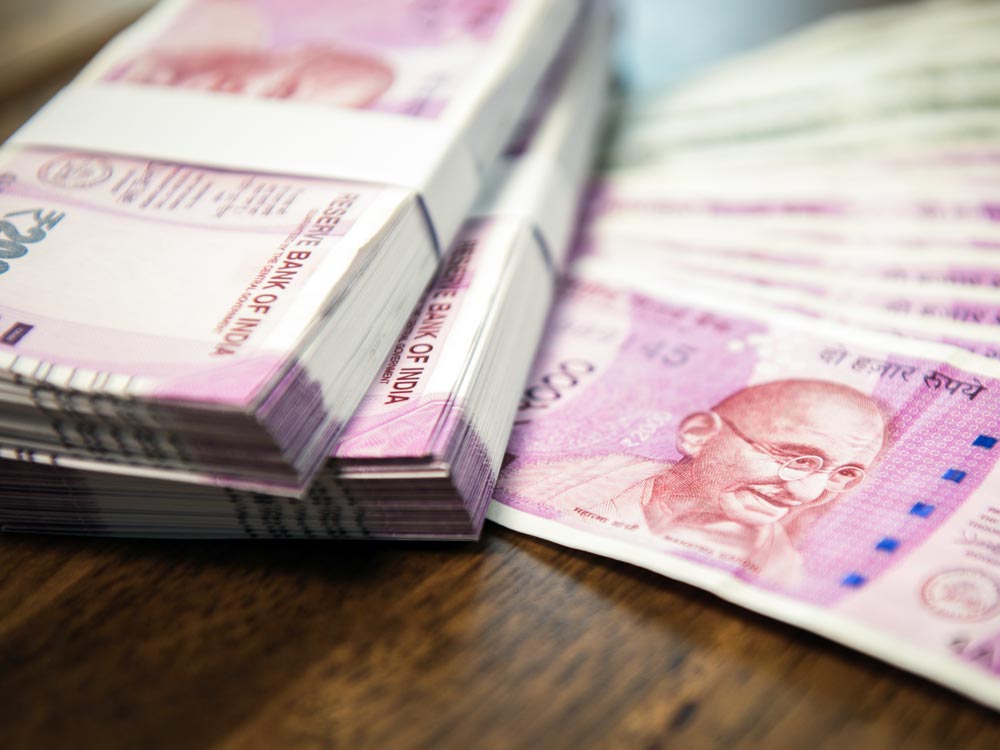
The coronavirus pandemic has rattled the global economy and markets. The markets have seen huge sell-offs mainly because of panic among investors. Half of BSE 500 companies have lost more than 40 per cent of their market capitalisation. Some stocks have been hammered so bad that they are trading lower than the cash they hold in their books. Hence, these companies are trading at huge discounts.
Our filter focused only on those companies that have a cash reserve more than their current market capitalization, even after paying off all their debts. Finally, we ended up with two companies. Surprisingly, both are PSU stocks. Although NBCC also cleared our filter, cash on its book is the advances received from its customers for ongoing projects, which will be paid to its contractors. Hence, it means that all the cash does not belong to the company itself.
MOIL
Net Cash: Rs 2,460 crore Market Cap: 2,363 crore
Originally established in 1896 as a British company and later taken over by the government of India in 1962, MOIL is jointly promoted by the government of India (56 per cent), the government of Maharashtra (4.8 per cent) and the government of Madhya Pradesh (4.7 per cent). At present, it is India's largest manganese ore producer, accounting for about 50 per cent of the country's total production. With about 92 million tonnes of reserves and 11 mines: seven in Maharashtra and four in Madhya Pradesh, the company is well-positioned to cater to India's steel demand. In the financial year ended 2019, it produced 1.3 million tonnes of manganese ore. Apart from 11 mines, it owns two plants that manufacture manganese and two wind energy farms.
The company's business is directly related to the performance of the steel industry as well as the demand for steel. Although global demand was robust in 2018 and in the earlier months of 2019, it was later dented by the trade war between two major economies and now by the global slowdown owing to the coronavirus epidemic. Nevertheless, the government's focus on infrastructure development and numerous initiatives, including affordable housing and the development of smart cities, are likely to boost demand for steel.
Looking at the financials, the company has a strong balance sheet and paid regular dividends over the last 15 years. It offers a dividend yield of more than six per cent at the current price. Cash and cash equivalents of Rs 2,460 crore can be used for future opportunities. On the flip side, the high levels of cash could also indicate that the management has run out of investment opportunities or doesn't know what to do with it. Apart from this, the high cash has depressed its ROE, standing at 11.8 per cent, as of the quarter ended December 2019. Net margin stood at 26 per cent in this period. The stock has corrected by close to 30 per cent over the last one year and currently trades at a PE of 6.3x as against its five-year median of 10.3x.
Garden Reach Shipbuilders & Engineers (GRSE)
Net Cash: Rs 2,850 crore Market cap: Rs 1,516 crore
Incorporated in 1934, it was acquired by the government of India from Macneill & Barry Ltd. in 1960. An arm of the Ministry of Defence, the company competes with other private- and public-sector players in the shipbuilding businesses. Having specialised in the construction of large-, medium- and small-size ships for the Indian Navy and the Indian Coast Guard, it has built and supplied more than 750 vessels till date.
Its most important driver is the order book, standing at Rs 27,955 crore as of March 2019 to be delivered till FY2027. This is 20 times more than its FY19 revenues. Thanks to the government's 'Make in India' initiative, GRSE has an edge over global shipyards in securing contracts to build vessels.
Between FY15 and FY19, it increased its level of indigenisation from 84.5 to 94.2 per cent. Currently, both the Indian Navy and Indian Coast Guards, having a fleet of 135-140 and 120 vessels, respectively, are expected to grow the number of their respective vessels to about 200 by 2027. GRSE is expected to be a big beneficiary of this order pipeline. However, fluctuations in steel prices, its main cost ingredient, are a major headwind for the company. Further, the shipbuilding space is very competitive, with several domestic private- and public-sector players competing for new orders, which could potentially limit GRSE's margins.
Looking at its books, the balance sheet is strong, with zero debt and Rs 2,850 crore of bank deposits. Its stock price has also fallen close to 30 per cent and in the last one month, is trading at a PE of 10x as against the median of 14x.








